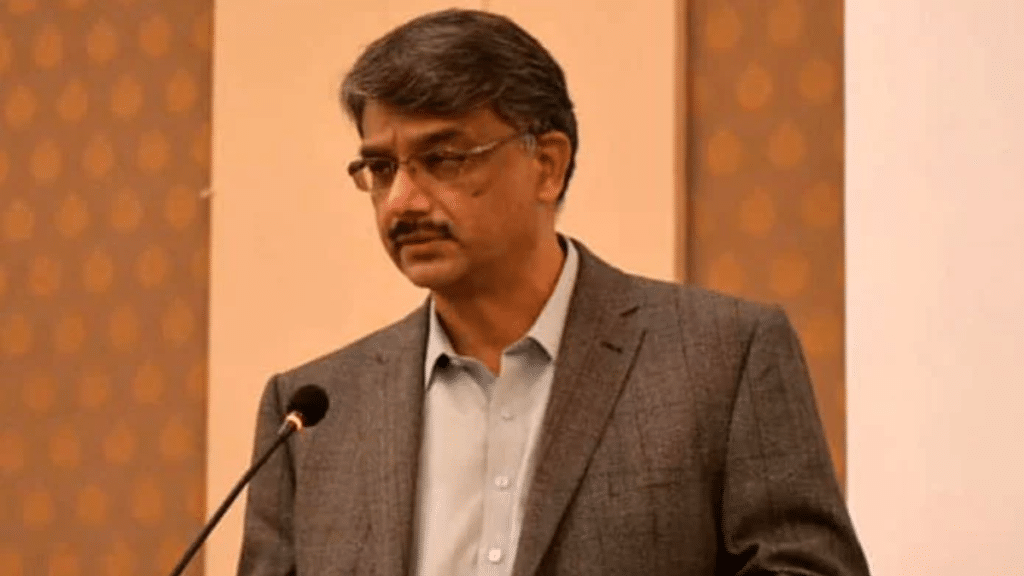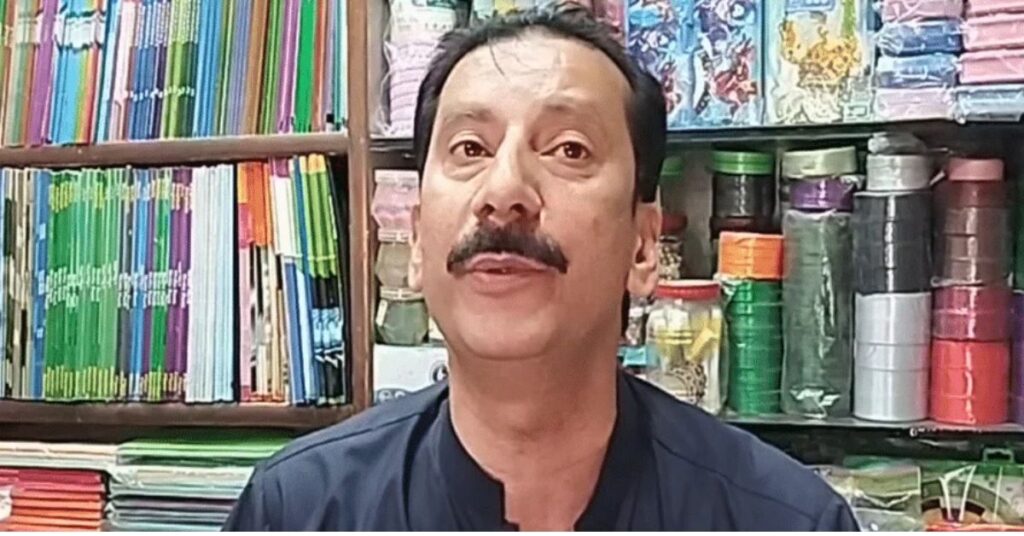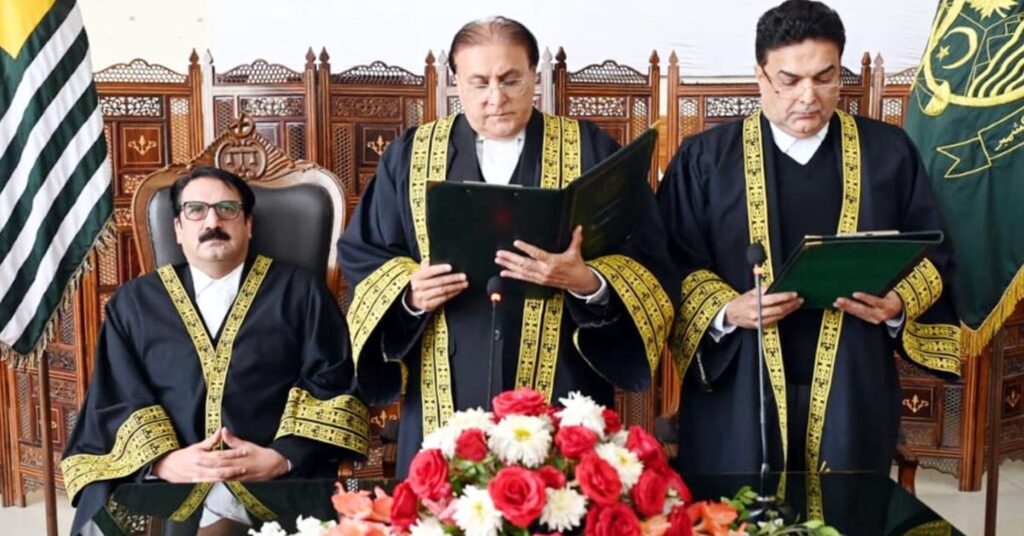BY: Zulfiqar Ali (Kashmir Investigation Team)
MUZAFFARABAD (Kashmir English): Azad Kashmir Prime Minister Chaudhry Anwarul Haq, while addressing officers at the inauguration of a water treatment plant near Muzaffarabad on Friday, claimed that Azad Kashmir was initially facing a deficit of Rs 71 billion in the current fiscal year due to electricity and flour subsidies.
He stated that his government has managed to overcome this deficit without receiving a single rupee in grant from the Pakistani government, utilizing its internal resources and the tax share allocated by Pakistan.
This year, the Azad Kashmir government did not face a single rupee budget deficit. He also claimed that his government had increased revenue from local sources.
According to him, in the last fiscal year, Rs 50 billion was earned from taxes. This year, the target has been set at Rs 75 billion, and Rs 70 billion is expected to be collected by the end of June.
However, these claims of the Prime Minister are completely contrary to the facts.
In the financial year 2024-2025, the Azad Kashmir government has estimated the non-development budget at Rs 220 billion.
In this amount, in addition to the daily expenses of various departments and institutions, Rs 41.6 billion has been allocated for wheat purchase, delivery, incidental charges, and depreciation.
Similarly, Rs 10.8 billion has been allocated for the energy and water resources sector, which also includes power purchase, while Rs 21.5 billion has been allocated for miscellaneous allowances. In addition, Rs 43.14 billion has been allocated for pension.
According to the revenue estimate, the Azad Kashmir government has shown a total revenue of Rs 201 billion for the financial year 2024-2025.
Out of this, Rs 96 billion is expected to be received from local sources, while the remaining Rs 105 billion will be given as tax share by the Government of Pakistan.
Several important sources of revenue have been ignored in this budget. For example, the government has shown an expenditure of Rs 41.6 billion on the purchase and delivery of wheat, which includes a subsidy of Rs 25 billion to the Azad Kashmir government.
However, the income of Rs 13.5 billion from the sale of flour has not been shown at all in the budget. If the government had shown only the subsidy amount in the expenditure, the calculation would have been correct even without the income, but when the entire expenditure has been shown, hiding the income makes the budget non-transparent.
Similarly, the Azad Kashmir government buys electricity from the Pakistani government for Rs 2.59 per unit. This cost is included in the expenditure, but the income received from the sale of electricity has not been shown anywhere in the budget.
The budget shows income of Rs 201 billion and expenditure of Rs 220 billion, thus showing a budget deficit of Rs 19 billion.
But if the income from the sale of flour is included, the estimated revenue reaches Rs 214.5 billion, and the budget deficit remains at only Rs 5.5 billion. If the income from the sale of electricity is also included, this deficit can be further reduced.
Now, if we look at the expenditure in more detail, it is estimated that Rs 48 billion will be spent on salaries, Rs 41 billion on allowances and Rs 43 billion on pensions, which makes a total of Rs 132 billion.
In addition, wheat-related expenditure is Rs 41.6 billion and miscellaneous grants are around Rs 20 billion, thus, the total expenditure is estimated at Rs 193.6 billion.
On the other hand, if the actual revenue is estimated, Rs 75 billion in tax revenue was expected, but so far only Rs 61 billion has been received.
By the end of June, another Rs9 billion is possible, thus the total tax revenue could reach Rs70 billion, and the total revenue after adding the share in taxes from other sources and Pakistan is Rs209 billion.
This means that if the expenditure is Rs193 billion and the revenue is around Rs209 billion, the government will save about Rs15 billion, and not a deficit of Rs71 billion as claimed by the Prime Minister.
This clearly shows that the deficit of Rs19 billion shown in the budget was opposite to the reality, and similarly, the Prime Minister’s statement that there was a deficit of Rs71 billion in the current financial year has no relation to the reality.
His statement was also completely opposite to the deficit shown in the budget. Similarly, the Prime Minister’s statement that the Azad Kashmir government is giving a subsidy on electricity is also contrary to the facts.
The real situation is that in Pakistan, NEPRA sells electricity at Rs 31.20 per unit, while this electricity is provided to Azad Kashmir by the Government of Pakistan at Rs 2.59 per unit, and the difference between the two rates is paid by the Government of Pakistan itself as a subsidy.
In the current financial year, the Government of Pakistan has allocated Rs 108 billion in its budget for electricity subsidy for Azad Kashmir, but the Prime Minister did not mention this in his speech, but rather falsely claimed that the Azad Kashmir government is paying the subsidy.
In addition, the Prime Minister also said that last year the tax revenue was Rs 50 billion, while in reality this amount was Rs 55 billion.
All these figures and facts make it clear that the claims regarding the budget and subsidy of the Prime Minister of Azad Kashmir, Chaudhry Anwarul Haq, do not correspond to the ground realities and official figures.




